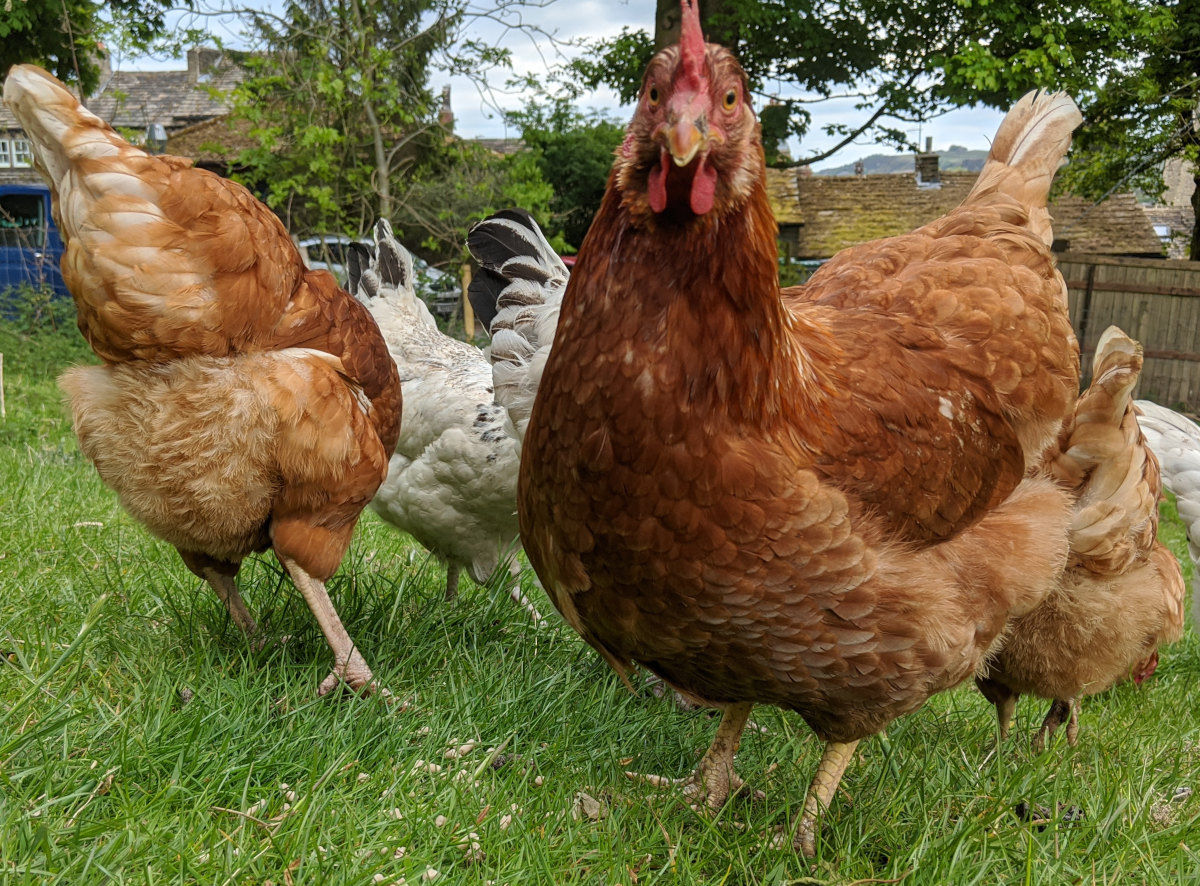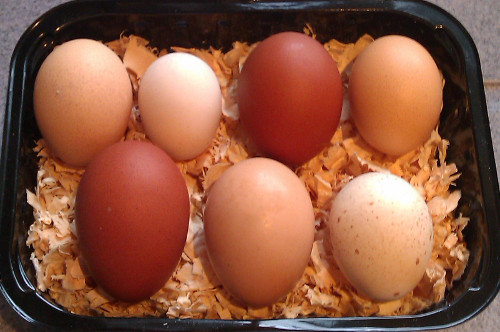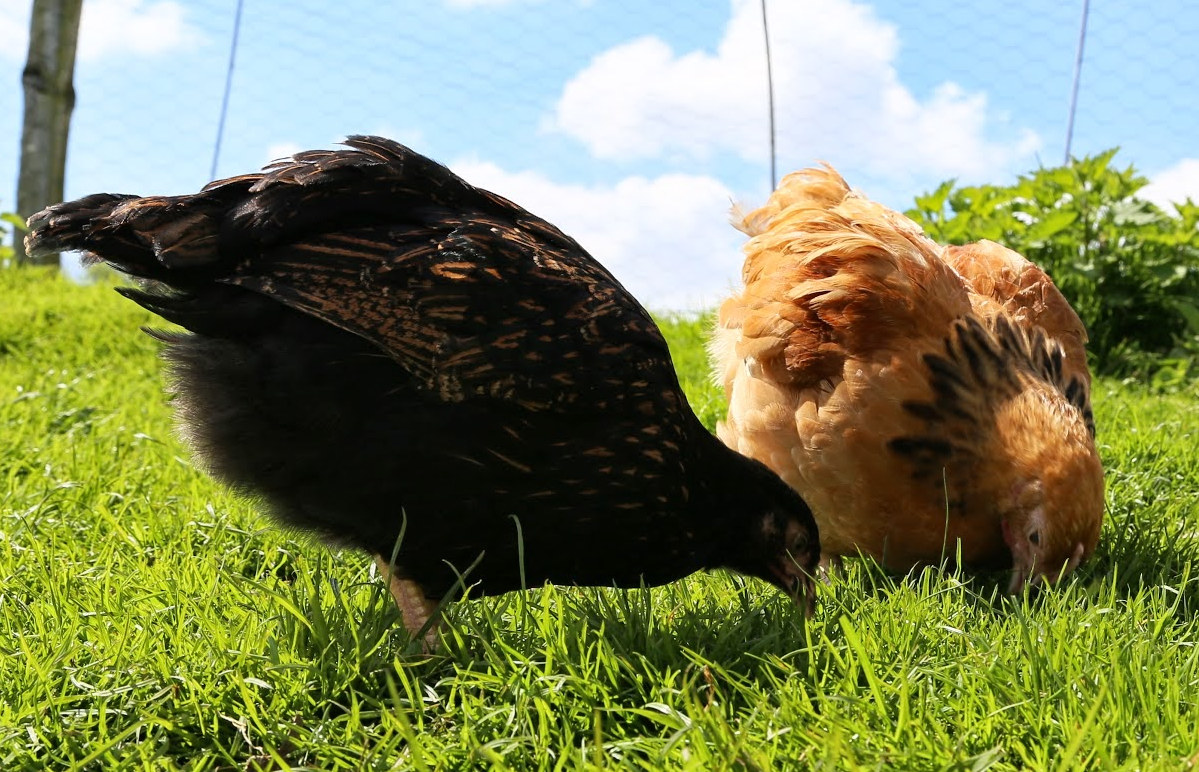When is a pullet ready to lay eggs?

Like most keepers I am always anxious for my hens to get laying.
A started pullet or Point Of Lay Pullet is a term used to describe a young hen that is at least 19 weeks old and about to start laying eggs. It is more of a commercial term used to describe hybrids that are put into laying sheds.
Table of Contents
These birds are usually fully grown and the combs and wattles are beginning to redden and develop. The term Point Of Lay is a little vague because it is breed and rearing condition dependant.
When will my pullets begin to lay their first eggs?
As long as your pullets have been well fed and looked after they will begin to lay eggs sometimes between the age of 19 and 24 weeks of age.
Pullets raised later in the year when days are shorter will take longer to come into lay.
Below: Modern hybrid layers can be ready in as little as 19 weeks.
Hybrid chickens begin to lay eggs between 20 and 22 weeks of age and heritage breeds will start producing eggs from 28 weeks of age. Eggs will be small to begin with but will get larger in time.
Below: Every chicken keeper wants to know when they will get a nest full of eggs.

It depends on the time of year as well as chickens that mature in the shortening days of fall might not start laying until the following season.
How do you know when a pullet is about to lay?
Pullets typically start laying eggs between 16 and 24 weeks of age, but the exact age will vary depending on the breed of chicken, the climate, and the pullet's individual health and development.
Chickens have some characteristic behaviours that begin to show before laying their first eggs.
The signs that a chicken is going to start laying eggs include:
- Squatting in the nests. Hens that are about to lay eggs often enter the nests and settle for a few minutes before getting out again.
- Combs and wattles getting bigger and redder. Young female chickens develop more slowly and as she matures and the hormone levels rise, her comb, wattles, and face will change from light pinkish red to brighter, deep red colour. They will also grow in size.
- The pelvic bones widen and separate as the bird matures to allow eggs to pass. If you hold your hen carefully and put your hand between it's legs, you can feel 3 distinct bones with a three finger gap in between. If all you feel is a solid bone with no gaps, the hen is not ready to lay for a few more weeks.
- Crouching when you approach. Young pullets often crouch for their keepers as they would do for a cockerel trying to mount them.
- Cockerels getting interested in the hens is a sign they are about to begin to start producing eggs.
- She will make more noise and become vocal.
- Increased feeding. As a pullets egg producing systems get going she will need to eat almost twice as much and your feed bill will go up.
- There are a few other ways to tell if a chicken is laying eggs, they hang around the nest for a hour or so in the mornings rather than wandering off to free range and you may well hear the egg song from laying hens, although not all sing when they lay.
When do hens start laying eggs by breed of chicken?
The exact age a chicken will start laying eggs is breed dependant to some extent.
| Breed or type | Age of pullet at first eggs |
| Red sex linked hybrid | 20 weeks |
| Heritage breeds | 28 weeks |
| Silkies | 40 weeks |
| Bantams | 26 weeks |
| Rhode Island reds | 22 weeks |
| Broiler fowl | 22 weeks |
| Jersey Giants | 36 weeks |
| Barnevelders | 24 weeks |
| Orpingtons | 36 weeks |
Hens raised in the shortening days of Fall may take 6 or 8 weeks longer to come into lay because they are so dependant on day length.
Factors which effect when a pullet begins to lay eggs:
The exact age at which a pullet will start laying eggs can vary depending on the breed and individual factors, but it typically occurs when they are around 5 to 6 months old.
Below: Bantams, rare and heritage breeds mature later and take longer to start laying eggs.

Some pullets may start laying eggs as early as 4 months, while others may take a bit longer, up to 7 months or more.
Several factors influence when a pullet will begin laying eggs:
Breed: Different chicken breeds have different maturation rates. Some breeds are known for early egg production, while others may take longer.
Nutrition: Providing pullets with a balanced and nutritious diet is essential for their development and the onset of egg production. Ensure they receive proper feed with adequate protein and calcium levels.
Daylight Hours: The amount of daylight hours also plays a role. Chickens typically start laying eggs as daylight hours increase in the spring and summer, as this mimics natural conditions.
Stress and Health: Stressors, such as overcrowding or illness, can delay the onset of egg laying. Healthy, well-cared-for pullets are more likely to start laying earlier.
Genetics: Genetics can influence when pullets begin to lay. Some genetic lines may start laying earlier or later than others.
To encourage pullets to start laying eggs, make sure they have a suitable and clean nesting area with comfortable nesting boxes. Additionally, provide them with a consistent source of clean water and high-quality feed.
As they reach the appropriate age and conditions are optimal, you can expect your pullets to begin laying eggs regularly.
